On Tuesday 19th April, some of the world’s major seafood suppliers and retailers including Tesco, New England Seafood and Lusamerica, echoed concerns from their customers as they made impassioned pleas to government delegations to set a limit on overfished yellowfin tuna catch in the Indian Ocean. However, there was disappointment at the low attendance, with only five delegations accepting the invitation, despite the meeting only being 30 minutes.
The roundtable discussion, organised by the Global Tuna Alliance (GTA), was an opportunity for member states in the Indian Ocean Tuna Commission (IOTC) to hear directly from companies operating across the tuna supply chain ahead of the IOTC annual conference, taking place between 16 – 20th May this year.
During the roundtable, delegations heard from stakeholders who implored them to consider a range of issues from the importance of management procedures to improving observer coverage and clamping down on labour abuse and illegal, unreported and unregulated (IUU) fishing.
Peter Adame, Director of Communications and Sustainability for Lusamerica Foods, said: “Yellowfin populations continue to be a concern in the Indian Ocean. I urge our delegates to agree on reducing catch by 30% and adopting a science-based management plan. This would entail harvest strategies with precautionary reference points as well as harvest control rules. I also encourage the group to prioritise observer coverage, especially for ships that are practicing transshipment as this is not only important for environmental sustainability, but it’s a mechanism for reducing the chances of human rights abuses and forced labour.”
He added: “A proper management plan has been put off and delayed for too long. As delegates you have a crucial role to play, and I’m asking for your help.”
Ruth Hoban, Head of Sustainability at New England Seafood (NESI), said:
“NESI wants to continue to buy yellowfin from the Indian Ocean for the next 20 years to come, but to continue doing this there needs to be considerable improvements on an effective rebuilding plan, which needs to happen at the upcoming session.”
The GTA, whose members collectively bought 1.27 million tonnes of tuna in 2020, approximately 20% of the global production and worth $1.3 billion, form one of the world’s most extensive networks of seafood retailers and suppliers. Its Position Statement is effectively a wish list of proposals to improve environmental performance and social responsibility of the tuna industry in the Indian Ocean.
Helena Delgado Nordmann, the Responsible Sourcing Manager for Marine at Tesco, said:
“We ask that all the delegations go through the GTA position statement, discuss it in advance, and ensure that in the next IOTC meeting we have a strong agreement and a helpful way forward, not just for the yellowfin tuna issue, but other measures as well.”
The five delegations who accepted the invitation to the roundtable were: Australia, the European Union, Seychelles, Maldives, and the United Kingdom, with Germany also wishing to attend. Turnout represents only 17% of the 30 member states that comprise the IOTC.
Commenting on the low attendance, GTA Executive Director Dr. Tom Pickerell said, “Without understanding what changes the market would like to see from the Indian Ocean tuna fisheries, the vast majority of member states will be walking into next month’s conference without appreciating what the buyers are looking for.
“The roundtable was an opportunity for member states to show strong intent, not just to follow the scientific advice, but to also engage with businesses and their consumers who are placing increasingly greater value on the ethical and sustainable sourcing of their tuna.”
ENDS.
Notes to editors:
The Global Tuna Alliance (GTA) is an independent group of retailers and tuna supply chain companies who are committed to achieving more transparent, socially responsible, and environmentally sustainable tuna fisheries. Operating over 10,000 stores in 21 countries across four continents, they use their collective purchasing power to influence the policies set out by the tuna Regional Fisheries Management Organizations (tRFMOs).
Indian Ocean Tuna Commission (IOTC) is an intergovernmental organisation responsible for the management of tuna and tuna-like species in the Indian Ocean. It is one of the five tuna Regional Fisheries Management Organisation (RFMOs).
Lusamerica Foods, Inc. is a wholesale fresh and frozen seafood processor and distributor. Product is distributed to California, Washington and Arizona. Lusamerica Foods, Inc. is also an Interstate Certified Shellfish Shipper (ICSSL) that distributes fresh and frozen seafood interstate.
New England Seafood (NESI) is a major supplier of fresh and frozen premium sustainable fish and seafood in the UK and one of the largest importers of fresh tuna. Their customers include several of the UK’s leading supermarkets such as Marks & Spencer, Sainsbury’s and Waitrose; as well as smaller retail outlets; restaurant chains; food service markets and wholesale sectors nationwide.
Tesco PLC is a British multinational groceries and general merchandise retailer and the third largest retailer in the world in terms of gross revenue. It is the market leader of groceries in the UK and has shops in five countries across Europe.
